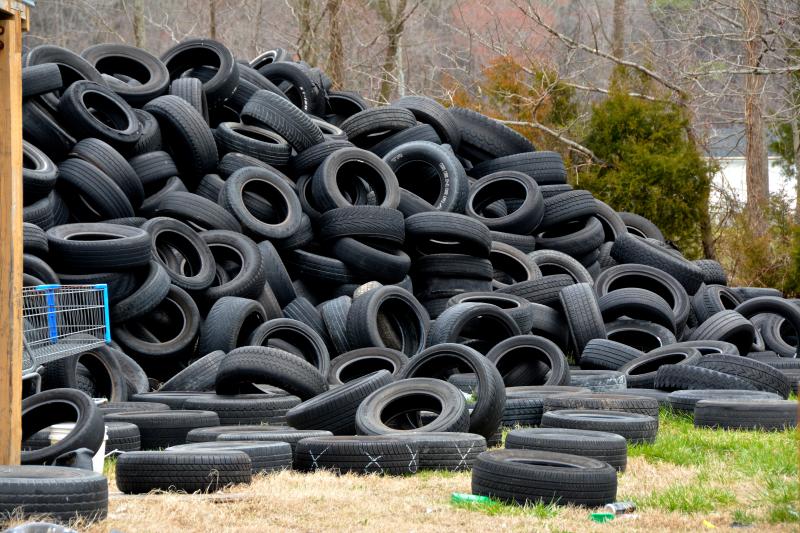A cleanup program by the Department of Natural Resources and Environmental Control now in its second decade is reaching more Delaware farmers to help them rid their properties of scrap tires at little or no cost to their agricultural operations, according to Tara Grazier of DNREC’s Scrap Tire Management Program.
According to DNREC, the state generates more than 750,000 scrap tires annually, making proper disposal a priority so they don’t turn into environmental hazards or cause the spread of illness or disease. Both piled and strewn tires often harbor pests such as mice and snakes, and also hold standing water, an ideal breeding ground for mosquitoes that transmit diseases like West Nile virus and Eastern equine encephalitis.
Likewise, scrap tire fires release hazardous pollutants into the air, while runoff from melting tires can pollute soils, surface water and groundwater. Extinguishing tire fires can be difficult and prolonged, releasing more toxins to the environment.
Grazier, a planner with DNREC’s Division of Waste and Hazardous Substances, said the scrap tire management program, which originated in 2007, encourages farmers in the First State to use the state’s scrap tire management fund to eliminate piles of scrap tires from their farms. She explained the simple process during the Delaware Farm Bureau’s recent annual meeting: After a farm property owner notifies DNREC of their intent to remove a scrap tire pile, she will meet with them to determine if the scrap tires meet the fund’s criteria. The farm property owner can then manage the removal themselves or DNREC can contract with approved vendors that will remove scrap tires from the property. “We are only looking to remove tires from your properties. That’s it,” Grazier said.
Ronnie Robbins, a retired dairy farmer near Milford, reported a very satisfactory experience after contacting Grazier for help. “We had so many tires accumulated over the years, including all the tires for our silage tarps. It amounted to several big loads the disposal guys hauled away. The program couldn’t have worked better for us,” he said.
Several Delaware Farm Bureau members mentioned illegally dumped tires that can end up on farmland property by no fault of the farmer, and there’s a program for that, too, Grazier said. Illegally dumped scrap tires, along with other kinds of illegal dumping, can be reported to DNREC’s 24-hour environmental complaint hotline at 1-800-662-8802. Once reported, small numbers of dumped scrap tires can be removed by DNREC, while larger amounts of dumped tires can require bringing in a DNREC-contracted vendor for removal.
Property owners and farmers should call DNREC’s Division of Waste and Hazardous Substances to start the process at 302-739-9403 or go to de.gov/scraptires.





















































